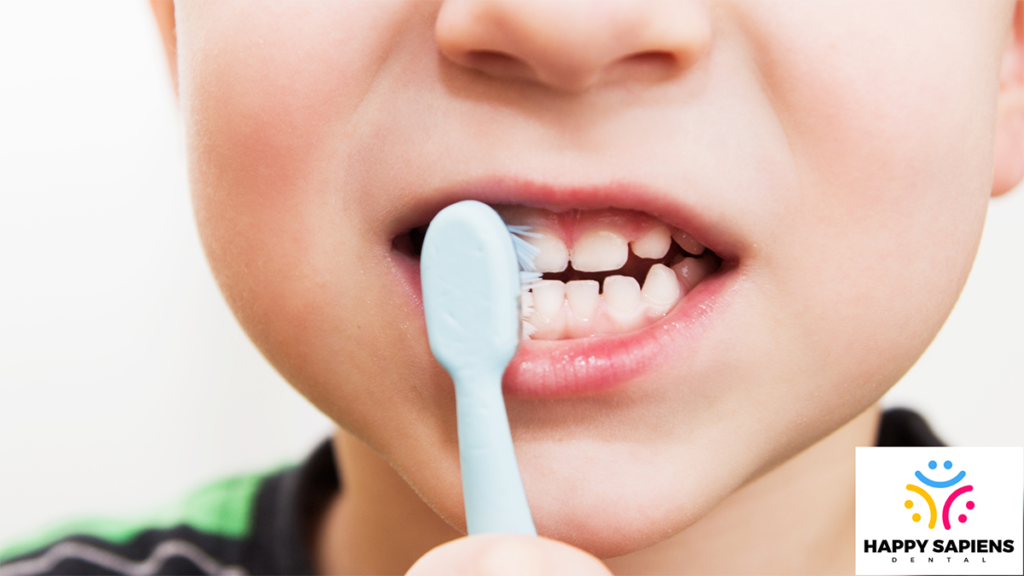
Over a decade of patient care
Request your appointment today!
PINEHURST - (281) 356-3351
WOODLANDS - (281) 367-3685
How Important Is the Condition of Your Child’s Baby Teeth?

Dental pain is common and often a symptom of a dental problem or issue. It can affect people of all ages and vary depending on various factors, including access to dental care and oral hygiene practices.
What Causes Dental Pain?
The following may cause dental pain: bruxism, dental abscess, tooth decay, and tooth sensitivity. Let’s discuss them one by one.
Bruxism
Do you grind your teeth a lot? Then you may have bruxism. It’s often linked to stress, anxiety, sleep problems, smoking, alcohol consumption, and taking certain medicines. While occasionally grinding your teeth won’t do you any harm, regularly grinding your teeth can start hurting your teeth, jaw muscles, and temporomandibular joints.
Bruxism or teeth grinding can happen when you’re awake or asleep, and regardless of when it happens, it can cause several problems, such as wearing down of teeth, tooth loss, fractured teeth, and aesthetic problems.
Dental Abscess
A dental abscess is an infection that happens when your tooth is filled with pus and other infected material, and pain is its main symptom. Other symptoms may include bad breath, fever, sensitivity to hot or cold temperatures, red gums, swollen glands in the neck, and a swollen upper or lower jaw.
It is always best to see a dentist if you have any symptoms of a dental abscess, as it will not go away on its own. However, in cases where you can’t meet your dentist right away, you can use over-the-counter pain relievers as temporary relief.
Tooth Decay
Tooth decay is a common cause of dental pain, and it typically happens when the enamel, or outer protective layer, of your tooth is damaged due to acid produced by bacteria or poor oral hygiene. There are five main stages of tooth decay, namely: initial demineralization, enamel decay, dentin decay, pulp damage, and abscess. It is usually the last two stages that can lead to severe pain.
Common signs and symptoms of tooth decay include toothaches, visible discoloration, bad breath, changes in tooth texture, and gum irritation, among others.
Toooth Sensitivity
As its name suggests, tooth sensitivity refers to the pain experienced in the teeth as a response to specific triggers, such as hot and cold foods and beverages, cold air, sweet foods and beverages, and cold water.
Having sensitive teeth can cause sharp and temporary pain in your teeth. And the level of pain can vary, from mild discomfort to more intense pain. Also, the pain can be temporary or persistent, depending on the underlying reasons and its severity.
Get Rid of Dental Pain
Baby teeth, or primary teeth, are the first set of teeth to erupt. Even though they eventually fall out, this doesn’t mean they’re less important or unimportant. They serve a crucial role in a child’s oral and overall development.
Here are six reasons why caring for baby teeth is important:
- Preserving Space for Adult Teeth
Premature loss of baby teeth can cause surrounding teeth to move and occupy the gap left behind by the missing tooth. This can impact tooth alignment and lead to crooked or crowded teeth.
There may no longer be adequate space for adult teeth once they’re ready to erupt. As a result, they might emerge in a less-than-ideal position. Misaligned teeth can make an individual more prone to dental problems and injuries.
Keeping baby teeth healthy and ensuring they stay in place until they’re ready to fall out can contribute to long-term good oral health.
- Facilitating Speech Development
Learning to speak is one of the most important developmental milestones in children. The ability to pronounce sounds and syllables properly can be influenced by the position of the tongue and teeth.
The absence of baby teeth can make it difficult for a child to create certain sounds and this can affect their confidence. If a child is unable to speak clearly, it may be difficult for others to understand them.
Ensuring proper dental care can help a child avoid speech problems and allow them to express themselves or communicate more effectively.
- Ensuring Proper Chewing Abilities and Nutrition
Damaged or missing teeth can restrict a child's dietary preferences. Sore teeth, for instance, may cause them to prefer soft food that doesn’t require heavy chewing.
They may also shy away from unfamiliar food textures. This can impact the nutrition their body is receiving. Healthy teeth enable a child to chew and digest their food properly, thereby facilitating the body's absorption of beneficial nutrients.
If a child's chewing abilities prevent them from trying fruits, vegetables, and other nutritious foods, this can also affect their overall health.
- Establishing Good Oral Hygiene Habits
Exposing children to dental care from an early age will help them establish good habits, which they can carry into adulthood. Cleaning their mouth and helping them brush and floss their teeth will familiarize them with dental care and teach them its importance.
If a child understands why these practices are essential, chances are they will be less resistant to them, including routine dental visits. They may become more receptive and cooperative to having their mouth cleaned.
- Avoiding Dental Problems
Badly decayed teeth may need to be extracted, and the procedure can be overwhelming for small children. Healthy and aligned teeth are easier to clean.
Additionally, they are also likely to stay in place until it’s time for the adult teeth to erupt. This can help ensure a uniform size and shape for the permanent teeth and, consequently, lovely smiles for your child.
If there are gaps between teeth, crowding, or crooked teeth, a child may require orthodontic procedures in the future.
- Boosting Confidence
Tooth decay and cavities may keep a child from interacting with their peers due to fear of being teased.
Keeping their teeth healthy will help them enjoy positive social experiences. It will also allow them to feel good about themselves and their appearance.
Thinking of Taking Your Child to Their First Dental Office Visit?
There's never a bad time to see the dentist. Because, if not properly cared for, baby teeth can develop problems just like adult teeth. If you’re seeking dental care services for children in Pinehurst and Woodlands, TX, get in touch with us at Happy Sapiens Dental. Our dental team works together to make visits as relaxed as possible for children. Talk to us to learn more about what you can expect from your child’s first dental visit. We’re also happy to answer any questions you may have regarding caring for your child's smile.
Contact Info
Pinehurst Location
32030 Decker Prairie Rd
Pinehurst, TX
77362
(281) 356-3351
The Woodlands Location
26219 Interstate 45 N
The Woodlands, TX
77380
(281) 367-3685
This website uses cookies.
Este sitio web utiliza cookies.